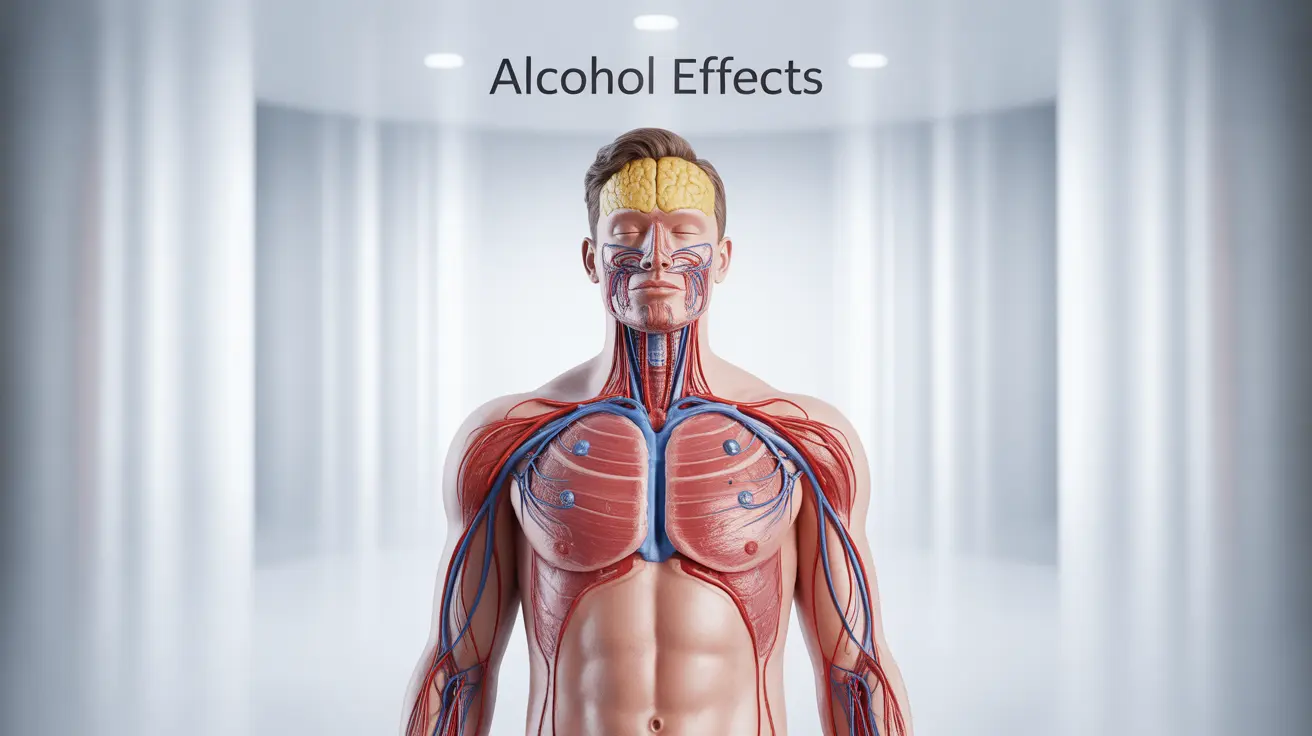Most adults who consume alcohol have experienced the unpleasant aftermath of drinking - the dreaded hangover. From throbbing headaches to overwhelming fatigue, hangovers can significantly impact your day after drinking. Understanding why we get hangovers is crucial for making informed decisions about alcohol consumption and managing symptoms when they occur.
Let's explore the science behind hangovers, examining how alcohol affects your body and what factors contribute to those miserable morning-after symptoms.
The Science Behind Hangovers
When you consume alcohol, your body undergoes several chemical changes that ultimately lead to hangover symptoms. Your liver works overtime to break down alcohol into acetaldehyde, a toxic compound that contributes significantly to hangover symptoms. This process, combined with alcohol's various effects on your body systems, creates the perfect storm for morning-after misery.
Dehydration: A Major Culprit
Alcohol acts as a diuretic, causing your body to produce more urine and leading to dehydration. This dehydration affects multiple body systems and contributes to common hangover symptoms like:
- Headaches
- Dry mouth
- Dizziness
- Increased thirst
- Fatigue
How Alcohol Disrupts Your Sleep
While alcohol might help you fall asleep initially, it significantly impairs sleep quality. It disrupts your natural sleep cycle by:
- Reducing REM sleep
- Causing frequent wake-ups
- Interfering with your body's natural sleep-wake rhythm
- Preventing deep, restorative sleep
Inflammatory Response
Alcohol triggers an inflammatory response in your body, leading to various physical symptoms. This inflammation can cause:
- Muscle aches
- Nausea
- Memory problems
- Difficulty concentrating
- General malaise
Different Alcoholic Beverages and Their Impact
Not all alcoholic drinks are created equal when it comes to hangovers. Darker alcohols like whiskey, red wine, and bourbon tend to cause more severe hangovers due to higher levels of congeners - chemical byproducts of fermentation. These compounds can intensify hangover symptoms compared to clearer spirits like vodka or gin.
Prevention and Management Strategies
While the only surefire way to prevent a hangover is to avoid alcohol, there are several strategies that can help reduce the severity of symptoms:
- Stay hydrated by alternating alcoholic drinks with water
- Eat a substantial meal before drinking
- Choose lighter-colored alcoholic beverages
- Pace yourself and know your limits
- Get adequate sleep after drinking
Frequently Asked Questions
Why do we get hangovers after drinking alcohol?
Hangovers occur due to multiple factors, including dehydration, toxic byproducts from alcohol metabolism, inflammation, and disrupted sleep patterns. When alcohol is broken down, it produces acetaldehyde, a toxic compound that contributes to hangover symptoms.
What causes dehydration and headaches during a hangover?
Alcohol's diuretic effect increases urination, leading to dehydration. This, combined with expanded blood vessels and inflammatory responses, contributes to hangover headaches. The body's electrolyte imbalance from dehydration further intensifies these symptoms.
How does alcohol disrupt sleep and contribute to hangover fatigue?
While alcohol can make you feel sleepy initially, it disrupts normal sleep patterns by reducing REM sleep and causing frequent awakening throughout the night. This poor-quality sleep contributes significantly to next-day fatigue and other hangover symptoms.
Can certain types of alcoholic drinks make hangovers worse?
Yes, darker alcoholic beverages like whiskey, bourbon, and red wine contain higher levels of congeners, which can lead to more severe hangover symptoms compared to clearer spirits like vodka or gin.
What are effective ways to prevent or reduce hangover symptoms?
Key prevention strategies include staying hydrated by drinking water between alcoholic beverages, eating before drinking, choosing lighter-colored alcohols, pacing yourself, and ensuring adequate sleep. However, the most effective prevention is moderating or avoiding alcohol consumption.




